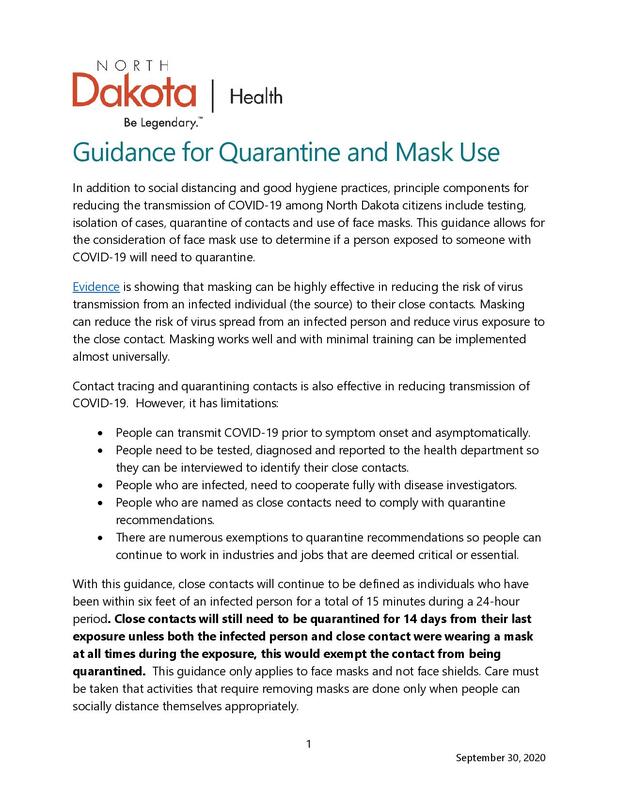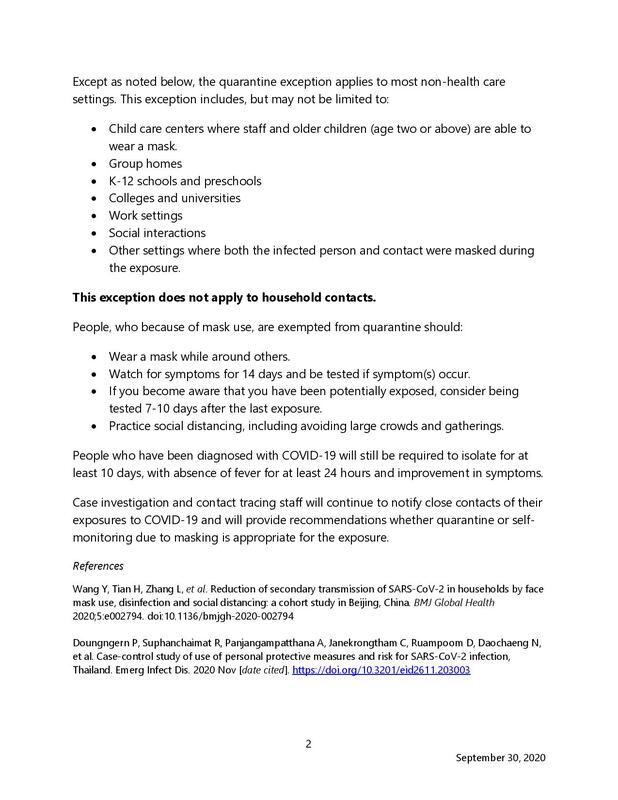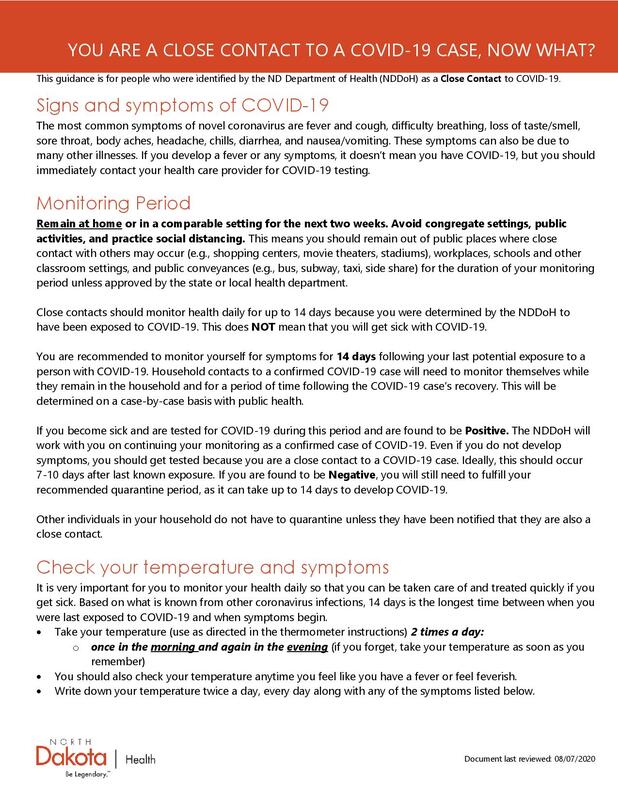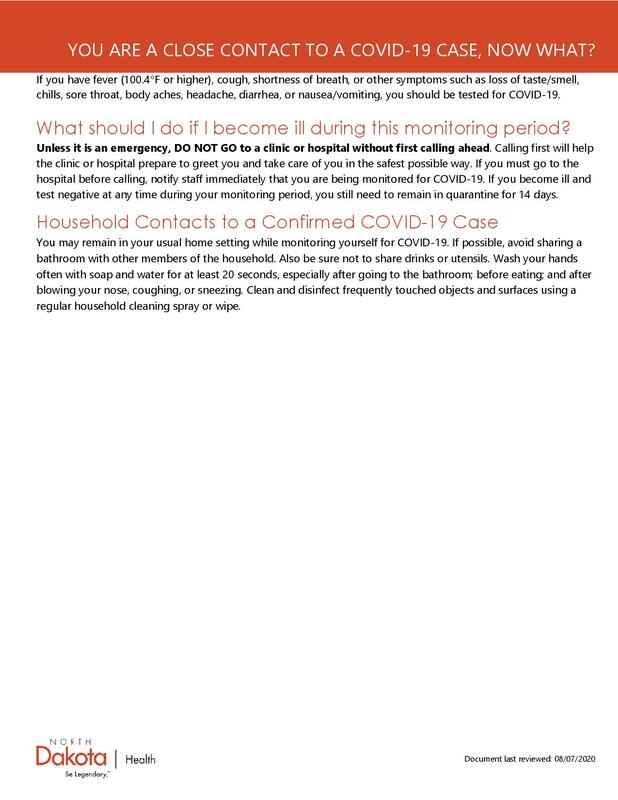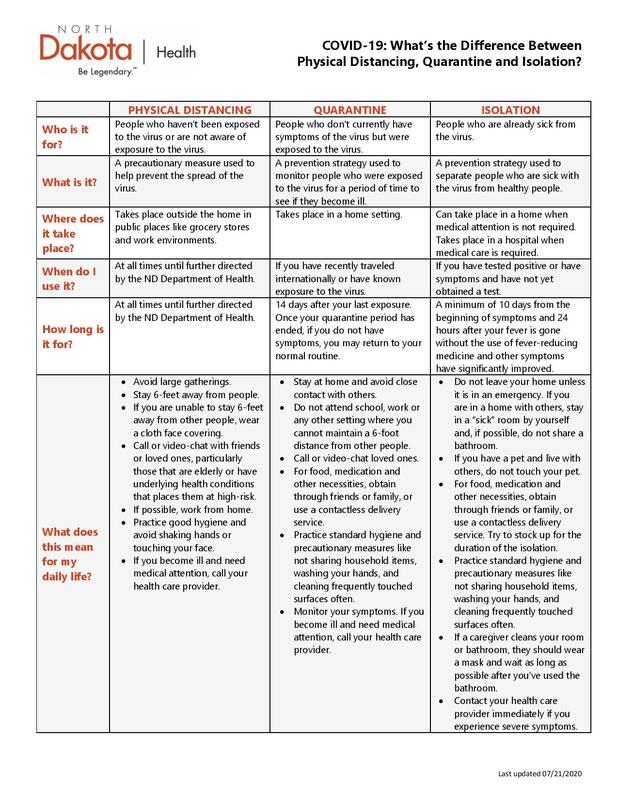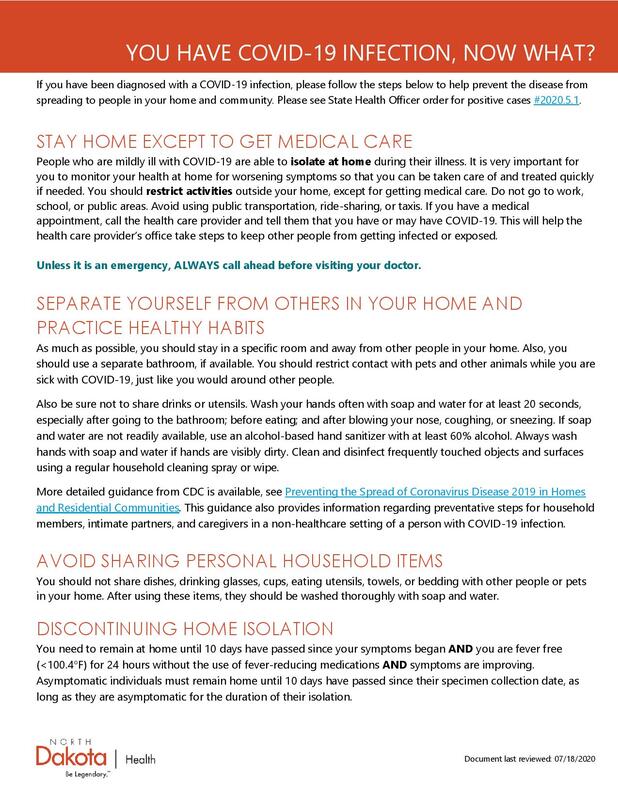BISMARCK, ND- The Advisory Committee on Immunization Practices, American Academy of Pediatrics and the Centers for Disease Control and Prevention (CDC) announced Wednesday, May 12, 2021, new recommendations for all adolescents to be vaccinated against COVID-19. Recommendations followed Monday’s Food and Drug Administration decision to authorize emergency use of this vaccine in 12- through 15-year-old adolescents. The North Dakota Department of Health is also recommending that all adolescents 12 – 17 years of age be vaccinated.
In a statement to the media, the CDC Director said, “Though most children with COVID-19 have mild or no symptoms, some children can get severely ill and require hospitalization. There have also been rare, tragic cases of children dying from COVID-19 and its effects, including multisystem inflammatory syndrome in children or MIS-C.”
In North Dakota, there have been 20 hospitalizations in children ages 12 – 17. There has been one reported death in North Dakota in this age group. Children with underlying health conditions, such as asthma, diabetes or obesity, may be more likely to develop severe illness. To date, eight cases of MIS-C have been reported in North Dakota. Children who develop MIS-C have inflammation in their bodies and problems with many organs, such as the intestines, heart, brain, lungs, skin and kidneys. These children may face ongoing health issues due to heart or other organ damage.
In addition to the risk posed by MIS-C, COVID-19 spread among children has been increasing in North Dakota. The number of children ages 12 – 17 who have tested positive for COVID-19 is 13%. The number of cases among this age group grew by 38% during March and April this year.
In this age group, 41% of the cases were reported as community spread and 36% were household spread.
Research is beginning to show that children who contract COVID-19 are at increased risk for experiencing long-term symptoms. While there is not a lot of data available regarding the long-term impact that COVID-19 has on children, some new research is emerging,” said NDDOH Immunization Program Director Molly Howell.
A recent study in the United Kingdom found that children can have prolonged symptoms of COVID-19, including fatigue, headache, muscle/joint pain, rashes, heart palpitations, cognitive impairment including lack of concentration and short-term memory problems. A study of COVID-19 in children in Italy also revealed that more than half of the children observed had long-lasting symptoms.
“COVID-19 vaccines have been shown to be a safe and effective way to protect children and families from the unknown ramifications of COVID-19, which can be long term and for some, life-threatening,” said Howell. “Adults and children who choose to get a vaccine are taking an important step toward protecting their health and the health of those around them.”
Adolescents are recommended to receive other important vaccines, including those that protect against whooping cough, tetanus, diphtheria, cancer-causing human papillomavirus (HPV) and meningitis. Certain vaccines are required for 7th, 11th, 12th grades and college entry. Schedule an appointment today for adolescent vaccines. This is especially important if your child got behind on immunizations during the pandemic. COVID-19 vaccine may be administered at the same time as other vaccines.
Vaccines are available through area health care providers, local public health, pharmacies and NDDoH pop-up clinics, etc. Visit www.health.nd.gov/together for more information regarding the vaccine and to find vaccine provider information.
If you need additional help scheduling your vaccination, you can contact the NDDoH COVID-19 hotline from 8 a.m. to 5 p.m. Monday through Friday, excluding holidays 866.207.2880.
In a statement to the media, the CDC Director said, “Though most children with COVID-19 have mild or no symptoms, some children can get severely ill and require hospitalization. There have also been rare, tragic cases of children dying from COVID-19 and its effects, including multisystem inflammatory syndrome in children or MIS-C.”
In North Dakota, there have been 20 hospitalizations in children ages 12 – 17. There has been one reported death in North Dakota in this age group. Children with underlying health conditions, such as asthma, diabetes or obesity, may be more likely to develop severe illness. To date, eight cases of MIS-C have been reported in North Dakota. Children who develop MIS-C have inflammation in their bodies and problems with many organs, such as the intestines, heart, brain, lungs, skin and kidneys. These children may face ongoing health issues due to heart or other organ damage.
In addition to the risk posed by MIS-C, COVID-19 spread among children has been increasing in North Dakota. The number of children ages 12 – 17 who have tested positive for COVID-19 is 13%. The number of cases among this age group grew by 38% during March and April this year.
In this age group, 41% of the cases were reported as community spread and 36% were household spread.
Research is beginning to show that children who contract COVID-19 are at increased risk for experiencing long-term symptoms. While there is not a lot of data available regarding the long-term impact that COVID-19 has on children, some new research is emerging,” said NDDOH Immunization Program Director Molly Howell.
A recent study in the United Kingdom found that children can have prolonged symptoms of COVID-19, including fatigue, headache, muscle/joint pain, rashes, heart palpitations, cognitive impairment including lack of concentration and short-term memory problems. A study of COVID-19 in children in Italy also revealed that more than half of the children observed had long-lasting symptoms.
“COVID-19 vaccines have been shown to be a safe and effective way to protect children and families from the unknown ramifications of COVID-19, which can be long term and for some, life-threatening,” said Howell. “Adults and children who choose to get a vaccine are taking an important step toward protecting their health and the health of those around them.”
Adolescents are recommended to receive other important vaccines, including those that protect against whooping cough, tetanus, diphtheria, cancer-causing human papillomavirus (HPV) and meningitis. Certain vaccines are required for 7th, 11th, 12th grades and college entry. Schedule an appointment today for adolescent vaccines. This is especially important if your child got behind on immunizations during the pandemic. COVID-19 vaccine may be administered at the same time as other vaccines.
Vaccines are available through area health care providers, local public health, pharmacies and NDDoH pop-up clinics, etc. Visit www.health.nd.gov/together for more information regarding the vaccine and to find vaccine provider information.
If you need additional help scheduling your vaccination, you can contact the NDDoH COVID-19 hotline from 8 a.m. to 5 p.m. Monday through Friday, excluding holidays 866.207.2880.
